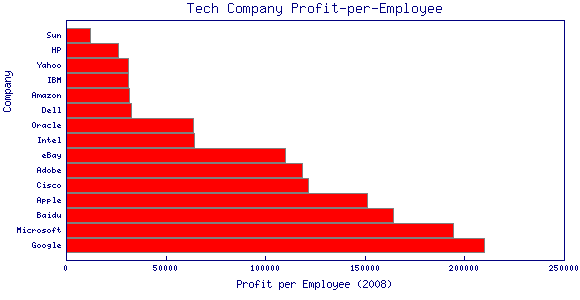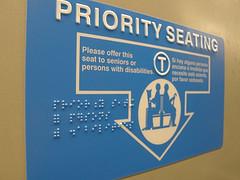Link:
https://dannyman.toldme.com/2009/06/23/ensure-my-safety/

There’s a new billboard at the bus stop at 19th Ave and Taraval. I could read the first three characters with my own little brain:
ä¿ Insurance
我 I
安 Safety / shelter
Looking up the fourth character: 全 (all) I see that the last two characters together mean "safety". 安 is easy to remember, because "woman under a roof" means safety / shelter / security.
ä¿æˆ‘安全
bao3wo3an1quan2
Ensure My Safety
There are many insurance agencies in the neighborhood.
4 Comments
Link:
https://dannyman.toldme.com/2009/06/17/adsense-suspended/
Back in 2005, Marissa Mayer, VP of Search Products & User Experience at Google, stated:
“There will not be crazy, flashy, graphical doodads flying and popping up all over the Google site. Ever.”
Apparently Google lacks the same sort of respect for the web sites of its AdSense customers, because they started putting animated advertising on my site.
“Say it aint so.”
According to Google’s “self-service tech support” there is no way to turn them off, short of reverting to text-only ads.
This is wrong on a few levels. And I’m not sure if Google is just being its regular sloppy self or if they are getting desperate for revenue such that they’re finding more wiggle room in the “don’t be evil” philosophy.
Whatever is going on down in Mountain View, I will just get along without the $10/mo or so I’ve gotten from AdSense revenue.
Feedback Welcome
Link:
https://dannyman.toldme.com/2009/06/17/spam-honorable-mention/
I hate spam at least as much as the next guy. Heck, fighting spam is my day job. But I just gotta say, this little guy who made it through the Gmail spam filter this morning just made me smile:

Feedback Welcome
Link:
https://dannyman.toldme.com/2009/06/16/strange-world/
Perhaps they are just being self-important, and I can’t help but imagine that the government is blocking them, but if this is even 10% true, well, Twitter and their network provider are doing the right thing in rescheduling some network maintenance:
“Our network partners at NTT America recognize the role Twitter is currently playing as an important communication tool in Iran. Tonight’s planned maintenance has been rescheduled to tomorrow between 2-3p PST (1:30a in Iran).”
I mean, if there is something for which Twitter could be genuinely useful it would be to quickly gather people together for public demonstrations.
Thanks, Linky.
Feedback Welcome
Link:
https://dannyman.toldme.com/2009/06/15/iranian-people/
Not long after the 20th anniversary of Tiananmen Square, the young people of Iran are on the streets protesting autocracy in their country. In 2009 I root for these young people just as I cheered on the young people of the Eastern Bloc in 1989.
The best video footage I have been able to find is from John Simpson with the BBC. The government is cracking down hard, beating people in the streets, and blocking communication, but all the same, people are spontaneously gathering in the streets and fighting back. There are stories and even video of police riding motorcycles in to scare crowds, who then turn on the motorcycles and leave them burning in the streets. As John Simpson points out, Iranians have since upped the ante and are driving their cars to block the streets: it is harder for riot police to thrash you that way.
SMS, web sites, and satellite TV are blocked as the mullahs broadcast reassuring images from Ahmadinejad’s victory rallies on domestic television. The government seems to be nervously botching the thing, because soon after the polls closed they very quickly announced lopsided election results. Why bother to even count the votes and fudge the figures if you think you may lose badly: just jump straight into repressive crackdown.
The political opposition is acting in unity. According to The New York Times, “opposition leaders have cataloged a list of what they call election violations and irregularities in the vote, which most observers had expected to go to a second-round runoff . . . Two of the three opposition candidates and a clerical group issued fresh statements requesting an annulment of the election on Friday . . . Those resisting the election results gained a potentially important new ally on Sunday when a moderate clerical body, the Association of Combatant Clergy, issued a statement posted on reformist Web sites saying that the vote was rigged and calling for it to be annulled.”
I saw one blog post that mentioned that it was student protests in 1979 that led to the overthrow of the Shah and the birth of the Islamic Republic. The rapidity with which that entrenched autocracy was overthrown and replaced surprised the world then. Today Iran has a 30% unemployment rate which means a lot of young people full of passion that their best years not be wasted, with plenty of free time to organize, with or without the advantages of SMS technology.
So, this week will be interesting: the progressive elements within Iran will fight hard and win some sort of victory, or they will be beaten down with greater ferocity. Although I have no power in the matter, I know who I am rooting for.
Feedback Welcome
Link:
https://dannyman.toldme.com/2009/06/11/howto-python-feedparser-twiki-rss/
To make up for my snarkiness in my last post . . . it is an easy matter of fetching the WebRss node from Twiki and running it through the Universal Feed Parser:
# Twiki RSS Feed
twiki_rss_url='http://localhost/twiki/bin/view/Main/WebRss'
import feedparser
import time
import calendar
# http://www.feedparser.org/
d = feedparser.parse(twiki_rss_url)
for e in d['entries']:
# e.updated_parsed = tuple UTC
# calendar.timegm = seconds UTC
# time.localtime = tuple locale
print time.strftime("%Y-%m-%d %H:%M",
time.localtime(calendar.timegm(e.updated_parsed)))
print e.rdf_value # Author
print e.title
print
1 Comment
Link:
https://dannyman.toldme.com/2009/06/11/i-hate-twiki/
Seriously, WikiWords are the dumbest idea for marking a link to a document node. But when you generate HTML that looks like this, you are doing it wrong:
<body class=”patternViewPage”><a name=”PageTop”></a>
<div id=”patternScreen”>
<div id=”patternPageShadow”>
<div id=”patternPage”>
<div id=”patternWrapper”><div id=”patternOuter”>
<div id=”patternFloatWrap”>
<div id=”patternMain”><div id=”patternClearHeaderCenter”></div>
<div id=”patternMainContents”><div class=”patternTop”>
<div class=”patternToolBar”>
<div class=”patternToolBarButtons”>
I mean, that just means that you have gone batshit insane.
Anyway, back to learning how to parse information from HTML documents using Python . . .
Feedback Welcome
Link:
https://dannyman.toldme.com/2009/06/10/bones/

Dialogue from two ChinesePod lessons: Can You Use Chopsticks? and Does it Have Bones?
Man: ä½ ä¼šç”¨ç·å马?
ni3 hui4 yong4 kuai4zi ma?
You can use chopsticks?
Woman: 当然会。 ä½ çœ‹ï¼
dang1ran2 hui4. ni3 kan4!
Certainly can. You see!
Man: å“‡ï¼ çœŸåŽ‰å®³ï¼
wa1! zhen1 li4hai!
Whoa! Truly awesome!
Woman: 这个很好åƒï¼
zhe4ge hen3 hao3chi1!
This is so delicious!
Man: 有没有骨头?
you3 mei2you3 gu3tou?
Does it have bones?
Woman: æœ‰ï¼ å¾ˆå¥½åƒï¼
you3! hen3 hao3chi1!
Yes! Very tasty!
Man: 我ä¸åƒéª¨å¤´ã€‚
wo3 bu4 chi1 gu3tou.
I don’t eat bones.
会 = hui4 = can do something
用 = yong4 = use
ç·å = kuai4zi = chopsticks
å¥½åƒ = hao3chi1 = “good eat” = delicious (é¢åŒ…个很好åƒï¼)
有没有 = you3mei2you3 = “have-not-have” (does it have . . .)
有 = you3 = “have” (yes)
没有 = mei2you3 = “not have” (no)
骨头 = gu3tou = bones
Yeah, it has been awhile. This time through, 骨头 threw me for a bit of a loop because the character rendered differently in a certain font. According to my dictionary, 骨 is a compound of a skull-with-vertebrae (冎) over flesh (肉) though the bottom particle is drawn as a moon (月) except in one font it came out with the skull facing right, and the two horizontal strokes in the moon slanted downward in opposite directions to better resemble flesh. This appears to be question of style.
骨?
Meanwhile, if you combine a dog (犬) with a bone (骨) you get sly (猾). It seems that the homonym 滑, water (水) plus bone is more common but I like that the sly dog gets his bone.
The other thing I did is after scanning the drawing I ran the scan through the Potrace bitmap tracing engine in Inkscape, which converted the lines to a vector graphic, smoothing things out somewhat.
2 Comments
Link:
https://dannyman.toldme.com/2009/05/27/transit-etiquette/
I will never forget a day in high school when I was sitting on a crowded bus, headed home, and the lady in front of me, who was not old or pregnant, had what looked to me to be a pained expression on her face. I wondered if maybe her legs hurt as the vehicle lurched around, but I was a shy kid scared to offer her my seat in case really I had just totally misread the situation. After a while the crowd eased and the woman took a seat near me with obvious relief. I had failed on that day to give my seat to someone in need, and ever since I have made an effort not to repeat that mistake by paying greater attention to my fellow passengers.
I still ride transit most weekdays, and I have noticed especially that younger people tend to fail at the whole courtesy thing. Part of it may be self-involved rudeness, but part of it I think is a combination of shyness, and a fear of making contact with strangers in a public place. My generation was raised on the lessons that the world outside our homes is extremely violent and treacherous and that the most dangerous thing a child could ever ever do is to talk to a stranger. I like to think that with time most people grow out of their shells and feel more comfortable taking the initiative for social responsibility.
My own strategy is that if I see a person who might better deserve my seat, I try to make eye contact, at which point I start to get out of my chair. Then they either move forward or gesture for me to sit down. (It is better to err on the side of getting someone a seat. Also, I think people looking for a seat know to look others in the eye.) In other cases if the vehicle is crowded and eye contact can not be achieved, I’ll often just stand the heck up anyway, positioning myself in such a way that the person who could best use my seat finds it most accessible. (I would hate for a young punk to ignorantly snipe my seat.) (more…)
Feedback Welcome
Link:
https://dannyman.toldme.com/2009/05/22/google-quitrank/
The Wall Street Journal Reports:
Current and former Googlers said the company is losing talent because some employees feel they can’t make the same impact as the company matures. Several said Google provides little formal career planning, and some found the company’s human-resources programs too impersonal.
Concerned that employees may leave because HR is uncaring and impersonal, Google has naturally responded in the Google way:
The Internet search giant recently began crunching data from employee reviews and promotion and pay histories in a mathematical formula Google says can identify which of its 20,000 employees are most likely to quit.
Good luck with that.
I picture some super HR geniuses down in the Googleplex able to predict with great accuracy who will quit next, and exactly when, but lack any clue as to why they are likely to quit, or how to retain them. Still, they will still be hailed as ingenious visionaries because they figured it all out with great scientific precision and implemented their analysis using MapReduce.
Feedback Welcome
Link:
https://dannyman.toldme.com/2009/05/11/twitter/
I think Twitter is over rated. Some BBC commentator was yammering on the radio this weekend about how Twitter was insufficient to replace established media. WTF? Twitter is a way to waste a few minutes of time and occasionally score a chuckle or a wry observation off a friend. Much like a grilled cheese sandwich, Twitter should not be taken too seriously. And yet, there’s a whole ecosystem of people re-tweeting each other and #tagging their posts and live-tweeting as if like hey, its the blog-o-sphere 5.0 with a 140-character limit. Seriously, if you’re imitating the blagojoshere, you’re doing it wrong.
Today, I tweeted:
Twitter would be more pleasing if not for all the RT RT RT RT and #tagged #whoring #bullshit. I mostly un-follow those twats.
Which gets mirrored over to Facebook, where three people have “liked” it.
Consider this entry as my coming out of the Twitter closet. You can follow me if you like, but I really really really don’t care.
But I will say this for Twitter: it keeps my rants short!
Feedback Welcome
Link:
https://dannyman.toldme.com/2009/05/07/save-tesla-get-art/

Public Domain from teslasience.org
Are you a fan of Nikola Tesla? His last remaining laboratory, Wardenclyffe, on Long Island, where he had ambitions of developing a worldwide network of free electrical power, is threatened with sale and demolition. The Tesla Science Center at Wardenclyffe, a would-be museum, wishes to purchase, preserve, and museum-ify the land. They’ll accept donations via personal check. This random lady on Livejournal will accept donations on their behalfonline casino via PayPal, write a check, and for donations in excess of $20, she will draw you a picture of Nikola Tesla, “to your PG-rated specifications” and mail it to you.
(Thanks, beatonna!)
Update: Andrew suggested this crucial documentary on Nikola Tesla.
3 Comments
Link:
https://dannyman.toldme.com/2009/05/04/2008-tech-ppe/
I enjoyed Pingdom’s recent posts about the size of technology companies, as well as the money they are making, and I asked myself how that equates to the average profit made per employee.
So, I borrowed Pingdom’s numbers, which Pingdom borrowed from Google Finance, and then I quickly larned myself on the Perl GD::Graph module and I generated my own graph:

Or, if you prefer:
| Company |
PPE |
| Sun |
$11,920.37 |
| HP |
$25,950.16 |
| Yahoo |
$30,882.35 |
| IBM |
$30,969.62 |
| Amazon |
$31,553.40 |
| Dell |
$32,418.30 |
| Oracle |
$63,699.41 |
| Intel |
$64,121.21 |
| eBay |
$109,876.54 |
| Adobe |
$118,609.41 |
| Cisco |
$121,731.77 |
| Apple |
$150,937.50 |
| Baidu |
$164,139.44 |
| Microsoft |
$194,285.71 |
| Google |
$209,779.81 |
What is Baidu? Think of it as Chinese Google and you’ll know as much as I do. I’d reckon that profit-per-employee would be very roughly predictive of job security. My feeling about Google is that they are perpetually understaffed due to their traumatic recruiting process.
If you want to play, feel free to grab my ugly hack of a Perl script, the input data file, or unsorted output.
Update: Pingdom took my suggestion to heart and published their own summary.
2 Comments
Link:
https://dannyman.toldme.com/2009/05/02/hottest-slave-leia/
In browsing the Internet I was tempted to click a link labeled The 101 Hottest Princess Leia Slave Photos. Alas, I was horrified at the horrible scaling and otherwise atrocious user interface.
Then I asked myself if I could solve this problem. Well, not me personally, but the crowdsourcing tool called Flickr:
http://www.flickr.com/search/?q=slave+leia
Flickr can even find a CC-licensed sense of humor:

“You can’t un-see this.” (CC: Official Star Wars Blog)
See also: The force is strong with this one « Flickr Blog
Feedback Welcome
Link:
https://dannyman.toldme.com/2009/05/01/party-cat/
He is just too cute:
Party Cat Episode One
Party Cat Episode Two
Party Cat Episode Three
Party Cat Episode Four
Party Cat Episode Five
Party Cat Episode Six
Feedback Welcome
« Newer Stuff . . . Older Stuff »
Site Archive








